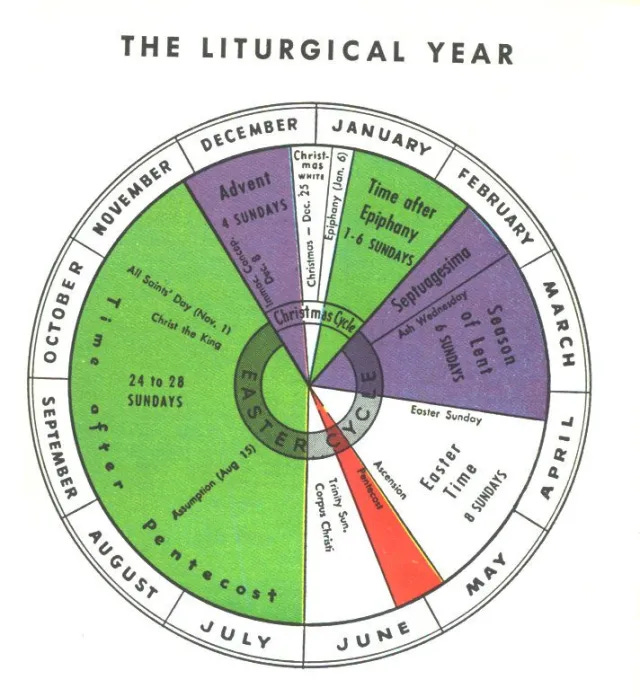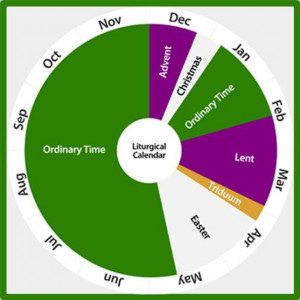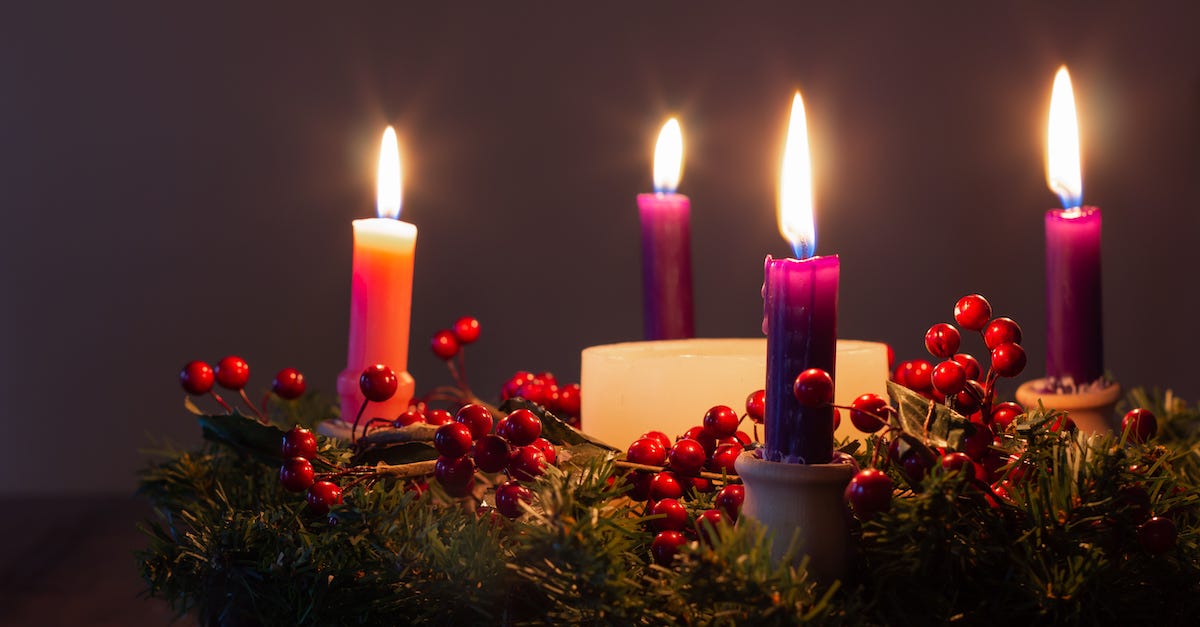Advent is my favorite liturgical season. The colors of the candles and vestments, the shortening of days and lengthening of nights as autumn becomes winter, the readings from Isaiah, the O Antiphons, the sense of longing and preparation - all these things convene perfectly each year to make a season that is brief but wondrous. And every year I reflect on some of the same thoughts. I wanted to share two of them briefly, in time for the Last Sunday and partial week of Advent. The first thought is on the difference between the traditional celebration of holidays as opposed to the modern secular celebration. The second thought is a small, but I think crucial, difference between the Old Calendar and the New Calendar, in the Catholic liturgical season specifically.
Why I love the traditional calendar as opposed to the secular calendar
The older I get, the more annoyed I get at the way our secular culture celebrates. I feel like an old man yelling at clouds: “Why are there Halloween decorations in Home Goods in July?” “Why do Black Friday sales start in September?” “Why does everyone buy their Christmas trees the day after Thanksgiving (if even that late)?” But more crucially, “Why do they throw them out the day after Christmas?” I’m not the first person to notice or be annoyed by these phenomena, of course. One of the chaplains at my alma mater was infamously annoyed at any outward celebration of Christmas before the day itself. And I’m sure many others before me have written more incisively as to why this is a problem.
As for me, I will leave it at this: it’s disordered. Setting aside the gross commercialization of every holiday, the general crassness of modern Christmas music, etc., I just think it’s weird and disordered and wrong to celebrate holidays before they happen and then immediately move on to the next holiday the minute the day is over. Unlike God, we humans do not live in an eternal present. We are bound by time, by what came before us and will come after us. We need to prepare for things before they happen, commemorate them when they happen, and then recover/react/process them after they happen. Do we go on honeymoons before we get married? Of course not. We prepare for our weddings (hopefully by prayer, marriage prep, and careful planning), then we experience the wedding and celebrate it on the day, then we revel in the joy of it by going on a honeymoon, which eventually winds down and leads us back to normal wedded life.
Which is why I prefer the traditional, Catholic way to celebrate. With the example of Christmas, there’s the preparation (Advent), leading up to the highest form of celebration (Christmas Day, the Octave of Christmas), and then a period of celebration (the 40 days until Candlemas) that leads us back in an almost imperceptible way to normal life. (More on that in a moment.) And just to be clear, I’m not saying that no one should ever listen to Christmas music before midnight on the 25th. There can and must be a balance in all things. I just see the beauty and value in preparation and anticipation for the great celebrations, and I wish our culture also valued that.
Why I love the Traditional calendar as opposed to the New Calendar
It’s a very fine distinction but I do think it’s important. The Old and New Calendars contain the same basic divisions and the same liturgical seasons, but some of them have different names. The big divisions are Christmas (which ends on Epiphany) and Easter (on Pentecost). Then there’s a season of preparation for each - Advent and Lent, respectively. Then there are seasons after Epiphany and Pentecost. Six liturgical seasons in total for each calendar. But in the Old Calendar, the seasons after Epiphany and Pentecost are called the Season after Epiphany and the Season after Pentecost. In the New Calendar, the two seasons together are called Ordinary Time.


In the Old Calendar, there are clearly two cycles: the Christmas cycle and the Easter cycle. Each contains a period of preparation, then of high celebration, then of falling away. The whole liturgical year is a rising and falling. A flux. And every part of the year is aimed at and oriented towards one or the other of the two great feasts.
In the New Calendar, though the seasons are the same, the focus is totally different. There is “Ordinary Time,” and then there’s everything else. There is stasis rather than flux, and no proper orientation around Christmas and Easter. You may say that since this is a distinction in the words we use, and not in the things themselves, that it is a trivial difference. True, it is a distinction in the words and not in the things, but that doesn’t mean it’s necessarily trivial. Lex orandi, lex credendi, as they say1. I believe that, between the two calendars, the Old Calendar better highlights the two great feasts and better situates the seasons around them in relation to them.
Which is why (among other reasons) I prefer the Old Calendar to the New. Have a blessed Last Sunday of Advent, and thank you for reading!
“The law [or way] of praying is the law [or way] of believing.” How we speak of a thing greatly shapes how we think about the thing.





Well said. Christmas should be celebrated at Christmas time. You wouldn't celebrate your birthday a month before. A lot of people, however, don't even acknowledge Christmas as Jesus' birthday. All they know are presents, Christmas music, and decorations.